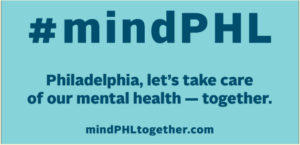Opinion: It is OK to admit that things are hard right now
 October 16, 2020
Category: Featured, Long, Purpose
October 16, 2020
Category: Featured, Long, Purpose
Disclosures
This guest column was written by Ami Patel Hopkins. It represents her individual opinion and does not represent the viewpoints of organizations with which she is affiliated either professionally or personally.This post was inspired by my fellow educators who had the courage to talk about their mental health publicly.
I can speak from my own experience, but prioritizing my mental health has been a long journey for me and mainly because of the stigma associated with it. I want to share coping strategies I have been using during one of the hardest years I have experienced.
First, I want to pose this question to you: What would you do if something was wrong with an organ in your body?
I am going to hypothesize that most if not all who read this article will have similar answers as me: figure out what is wrong and get the treatment needed for it.
A quick science lesson: your brain is an organ. If we shift our perspective and think of accessing mental health resources when our brain is “sick”, then perhaps we can begin to remove the stigma.
It is OK to admit that things are hard right now. Many of us are juggling several roles amidst living in a global pandemic and continued exposure to racism and bias.
As a person who identifies with the she/her pronouns and as Indian-American educator and mother, I have had to prioritize self-care and self-love in order to continue to believe in the tools we need to move forward: forgiveness, love, empathy and hope.
I play many roles in my life besides teaching 90+ amazing students. I am also an empath and I absorb the hurt our world is feeling as a collective. The only way I can keep my cup full is to schedule 30 minutes of self-care and self-love. During this time, I will do one or a combination of these activities: chakra healing (inspired by my ancient culture), writing, drawing, reading, being outside and unplugging from technology.
I have also had to rely on a strict schedule and routine so I do not fall into the habit of working in the very early morning hours (12 to 3 a.m.) to lesson plan, write curriculum, meet deliverables, complete paperwork, and adjusting lessons to make each day the best possible virtual experience for my students.
However, being a teacher is only one role I play. The other roles also have their own stressors and I have had to find my own healing community to manage. It has been hard as sometimes the people closest to you may not be the right community at that time. As a BIPOC mother, I have been connecting to more BIPOC mothers as they understand the fears I have and I do not need to explain them. The people closest to you may be able to empathize, but if they are not living it, it’s hard to fully understand and be a pillar of support.
Upon further reflection, I think being BIPOC is why I crave connection and practicing self-care and self-love in a community. For centuries, my ancestors have lived through oppressive systems and have survived. What we are observing now is nothing new, but it is still important to continue to take care of ourselves in order to have the energy to continue the fight for justice, equity, diversity and inclusion.
Here are some ways I have been prioritizing my mental wellness:
- Consistency in my distance learning classroom: we do the same daily check-in, use an interactive notebook as our main online tool, and share-outs and shout-outs for the last 15 minutes of class.
- Advocating for myself: I am ME and I do not need to conform to someone I am not. I’ve also learned to advocate for myself and am grateful to the people around me who have supported me with this.
- Reminding myself that my authentic-self is my superpower: I have stopped apologizing for being my authentic-self and it has been a game changer for me! I also take time each day to be grateful for the people in my life who have accepted my authentic self.
- Sticking to a schedule: Each day from 8:30am-5:00pm (at the latest), I commit to teacher duties. I have even scheduled out my teacher duties so I can maximize my time. From 5pm (or earlier) to 9pm, I am fully devoted to being mom to Aiden. After Aiden’s asleep, I focus on my relationships (husband, family, and friends). I have also been trying my hardest to shut down my computer from Friday (as soon as school is over) to Sunday morning. Those days are when I connect with my loved ones and spend quality time with them.
- Trying not to feel guilt: When it comes to helping my students, I have set up office hours and I try to limit my time to help students beyond class during these office hours. I have my own child and family to take care when school is over and my families know this and respect that boundary.
- Asking for help: It is not a weakness when you seek out the tools to help you be successful. Just as we accommodate students’ needs as educators, we need to realize that adults have different needs as well.
- Embrace, Elevate, and Empower (TripleE) your community and accept that some people in your community may not be the right people to do this with you.
Please remember that you are never alone and that mental wellness matters. I have created a spreadsheet with various resource links.
Trending News










